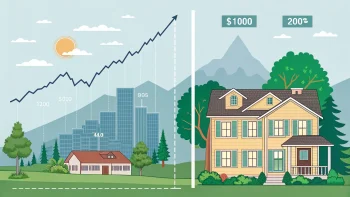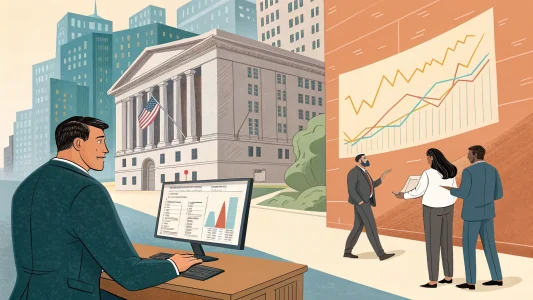In a recent discussion on America’s wealth system, I highlighted the striking contrast between today’s capitalism and the growing interest in socialism. My career as CEO of LifeGoal Wealth Advisors has given me a clear view of how money and opportunity shape our lives.
Table of Contents
ToggleAmerica’s Wealth and Diversity in Success
America is known for its dynamic economy and the drive of its people. When we look at the list of the eight richest men in America, we see a range of backgrounds. Consider this breakdown: three of them are immigrants, one was born to a single teenage mother, one is an adoptee, two come from middle-class families, and only one was born into wealth. This mix shows how different life stories contribute to the nation’s economic fabric. It is an example of a system where individuals earn success through their efforts.
A few key points from this discussion are:
- Individuals can rise above their circumstances.
- Calculated risks often lead to great rewards.
- The system appreciates hard work and innovation.
These points illustrate why many feel inspired by capitalism despite its criticisms. With the right approach, success is within reach, regardless of one’s beginnings.
View this post on Instagram
The Role of Incentives in Capitalism
Capitalism thrives on the idea of incentives. It gives individuals the opportunity to start businesses, make profits, and ultimately build wealth. I believe that this incentive structure is a core reason for America’s success in the past. The rewards for taking calculated risks have helped shape our nation into an economic leader.
The system works best when people see a clear connection between effort and reward. When work is rewarded through profit, it spurs more innovative ventures and drives progress. Over time, this incentive-based system has laid the groundwork for growth and prosperity.
“Capitalism works because of incentives. It rewards individuals who take calculated risks like starting businesses with potential for outsized returns.
This idea is not new. History shows that nations prosper when their citizens are motivated by the promise of personal gain and the challenge of building something new.
Current Challenges and Shifting Sentiments
Recently, however, there has been a noticeable shift in public opinion. A Gallup poll revealed that only 54% of Americans support our current form of capitalism. This statistic is a sign of growing concern about the widening gap between the rich and the poor. Today, many see the wealth disparity as a major problem, with rising house prices and increased economic uncertainty.
Young people, in particular, feel left behind. They view high costs and economic stress as barriers that hinder their ability to achieve the same level of success as past generations. This growing sentiment has led some to consider socialism as an alternative, as they feel that this system might address issues related to wealth distribution.
Some comments from public figures also echo these concerns. For example, a prominent New York City mayoral candidate who openly supports socialist ideas represents a shift away from traditional capitalist views. These ideas resonate with many who feel that the rewards of hard work are no longer guaranteed.
It is worth noting that a dislike for hard work does not drive this conversation. Rather, many see socialism as a quicker fix for a wealth system that seems to favor a small group at the expense of the many.
How Capitalism Rewards Effort and Innovation
One of the strongest arguments in favor of capitalism is that it rewards individual effort. The system encourages people to take risks and strive for better opportunities. When rewards are directly linked to effort, people are more motivated to work and innovate.
This reward system is visible in many aspects of American history. The opportunities available for ambitious individuals have long been the driving force behind the nation’s progress. As people take risks and innovate, new businesses emerge and the economy grows. This cycle of ambition and reward creates a self-sustaining model of progress.
In contrast, the idea behind socialism is to share resources and redistribute wealth. While this approach may offer short-term relief to those facing hardship, it often disconnects effort from reward. When rewards are distributed equally, regardless of personal input, the drive to innovate may decline. Over time, this could lead to lower productivity and economic stagnation.
History shows that societies where people are motivated by the promise of personal gain have experienced faster growth and stability. This is why many argue that preserving capitalist incentives is vital for long-term prosperity.
The Growing Debate Over Wealth Distribution
The debate over wealth distribution is not new. Many argue that the gap between the rich and the poor has widened too much, making everyday life harder for many Americans. Rising housing costs, job insecurity, and economic uncertainty have all contributed to the call for change.
Critics of the current system point to the challenges faced by everyday citizens. They argue that when the wealth gap is too wide, large sections of society can feel excluded from the benefits of growth. This feeling of exclusion creates an environment where alternative economic theories, such as socialism, gain appeal.
However, it is important to remember that capitalism has proven its ability to generate opportunity. Many successful individuals have overcome significant obstacles through hard work and determination. It remains a system that rewards commitment and risk-taking.
The key concern today is the balance between rewarding excellence and ensuring fairness. Many believe that adjustments are needed to help those who struggle without removing the benefits that come from striving for more.
Looking Ahead: A Call for Intelligent Discussion
The current debate over capitalism and socialism is a complex one. I believe that our conversation should focus on how we can improve the fairness of the system without removing the incentives that have shaped our success. Maintaining a balance between opportunity and fairness will be essential for the future.
This discussion is a call to consider both sides of a debate that affects every American. It is about finding ways to adapt our economic system so that it continues to motivate and reward hard work while addressing genuine concerns of inequality.
We must continue to question and refine our approach to wealth. A thoughtful discussion can lead us to solutions that benefit society as a whole without compromising the drive that makes our economy successful.
Concluding Thoughts on Economic Incentives
In conclusion, the principles that have driven American prosperity remain valid. The incentive-based nature of capitalism has long rewarded risk-taking and diligent work. Even as we face modern challenges, these principles continue to be the building blocks of opportunity.
While concerns about wealth distribution are real, they also remind us that change is needed. Our task is to make adjustments that support both growth and fairness. Thoughtful debate on these issues is essential.
This is a pivotal moment for our economy. By discussing these ideas openly, we can better understand the forces at work and make decisions that strengthen our future. I invite you to join this dialogue and continue exploring how we can shape an economic system that works for everyone.

















